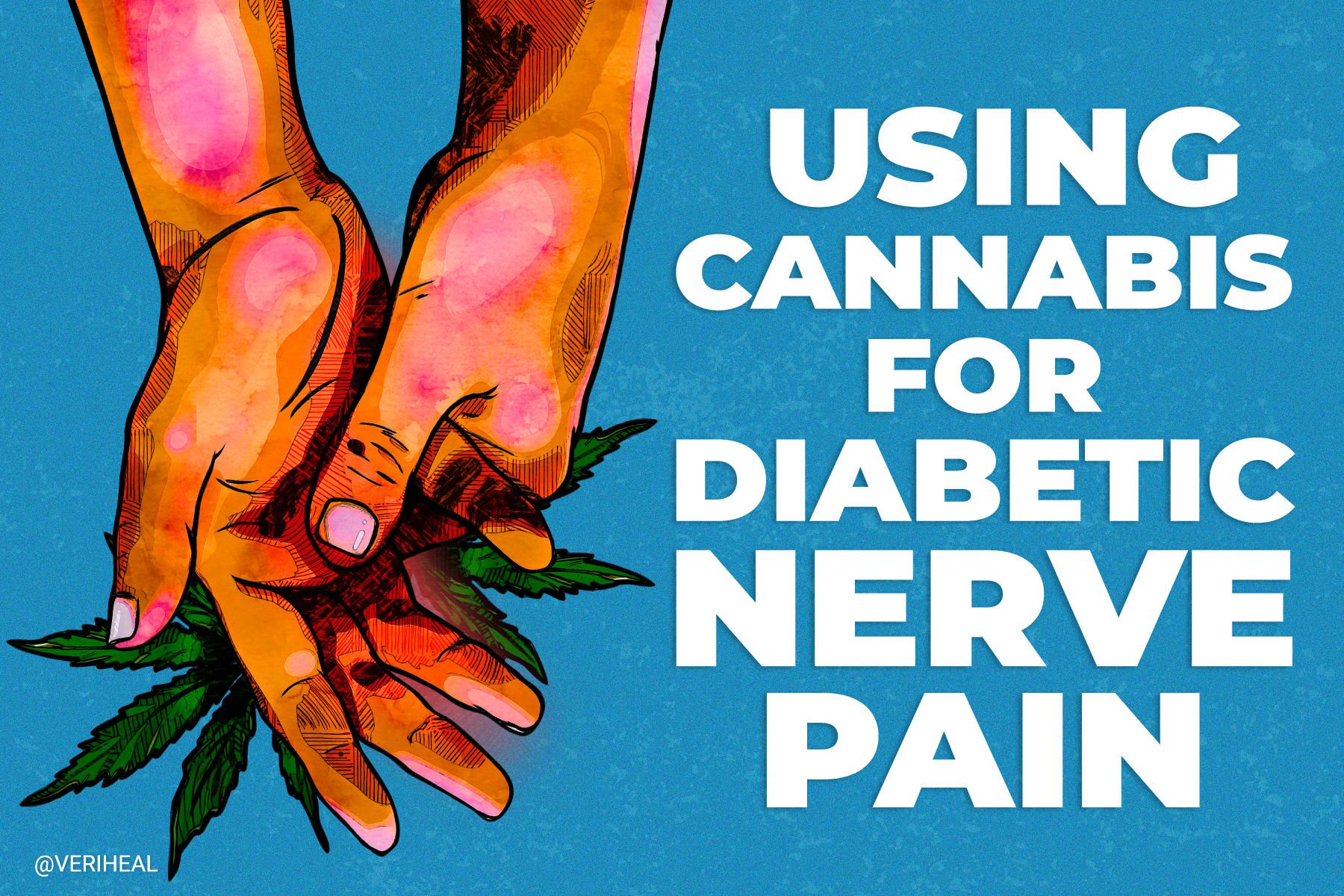Associated with potential long-term adverse effects in the body, diabetes is a condition that requires continuous management and monitoring. The body is unable to control the blood sugar, which can lead to diabetic neuropathy caused by long-term levels of high blood sugar. Neuropathy damages the nerves that send signals to one’s hands and feet, causing significant pain. Fortunately, a study published in The Journal of Pain found that cannabis is effective against the pain associated with diabetic neuropathy.
Diabetic Neuropathy and Pain
According to Healthline, early symptoms of neuropathy are “numbness, tingling, pain, or weakness in your hands or feet.” Other varying symptoms patients might experience include loss of sense of touch, muscle weakness, and dizziness. This diabetic neuropathic pain can start out mild but gets worse over time as it starts to spread through the arms and legs.
Considering the pain and affected areas, this condition can significantly impact quality of life as walking and other simple tasks become unbearable and sometimes impossible. A 2010 study published in the American Family Physician found that around 50% of those with diabetes experience diabetic neuropathy, which can also affect one’s quality of sleep and may even lead to depression.
It’s important to point out that once nerves have been damaged, they cannot be replaced. For this reason, doctors have gone to work conducting crucial studies on the prevention of nerve damage in diabetic patients—and some findings point to cannabis as a viable option.
A Promising Study on Cannabis Therapy for Diabetic Symptoms
A randomized and placebo-controlled study conducted by a team from the University of California San Diego found that when cannabis was inhaled, the participants’ diabetic neuropathic pain was blunted for several hours. The study was conducted with 16 participants who suffer from painful diabetic neuropathic (nerve) pain in order to “assess the short-term efficacy and tolerability of inhaled cannabis.”
Each participant either received four single doses of the placebo, 1% THC (low), 4% THC (medium), or 7% THC (high) cannabis. Dr. Mark Wallace, the lead author of the study, explained that they “found that the more concentrated the dose, the more relief people got,” suggesting that higher quantities of THC were most effective. However, it should be noted that this high THC quantity is not the same as the high potency (10% THC or more) cannabis that is associated with adverse effects.
Why You Should Get Your Medical Marijuana Card
Veriheal has satisfied millions of patients nationwide by giving them access to these benefits
- Larger purchase limits
- Peace of mind
- Enhanced legal protection
- Access to higher potency strains
- Save up to 25% on cannabis purchases
- Skip the line at the dispensary
When the team measured the pain intensity and subjective “highness” score, they measured it at five, 15, 30, 45, and 60 minutes post-inhalation as well as every 30 minutes for three hours after that. The participants inhaled the placebo or cannabis through means of vaporization, which allows cannabis’ effects to come through without exposing the patient to the hazardous pyrroles and high concentrations of carbon monoxide created when cannabis is smoked.
While the participants who received the cannabis did report getting high and even feeling euphoria or sleepiness, they also reported significant improvement in their pain. These participants rated their spontaneous pain as lower and were also less bothered by a gentle stroke of a foam brush, which would have otherwise been unbearable. The participants also tolerated a pinprick to their foot with more tolerance.
Not only did cannabis assist the participants with their neuropathic pain, but it did so for up to four hours after having inhaled the cannabis, with those who received the higher THC doses reporting the most significant reduction in pain and wearability. Wallace stated that “there is a lot of evidence on the positive effects of cannabis on the treatment of neuropathic pain,” but that “there are few placebo-controlled studies and very few studies that have looked at different doses.”
Wallace also goes on to explain that the cannabinoid receptors on the inflammatory cells and throughout the nervous system (nerves, spinal cord, and brain) are the reason why people suffering from diabetic neuropathy pain can benefit from cannabis. Cannabis stimulates these receptors, which results in a decrease in inflammation and a reduction in pain. The lead author also draws attention to the fact that there are few existing medications that can offer this type of relief and management.
Treating Diabetic Pain With Cannabis
According to Wallace, “Diabetic peripheral neuropathy is one of the most common neuropathic pain syndromes in our society…There are very few treatment options and most medications available have dose-limiting side effects.” With the potential of cannabis to be consumed regularly and offer effective relief, those who suffer from this kind of pain finally have a treatment to look forward to.
If consumers wish to benefit from cannabis without inhaling it, CBD lotions and creams have been found to be effective for nerve-related pain and damage. While these products are known for providing localized pain treatment that reduces inflammation, they do lack the high THC content found to be so effective in the study—so try to look for full- or broad-spectrum products if going this route.
Cannabis’ ability to treat pain is nothing new, but this study is significant for its emphasis on treatment for diabetic neuropathy pain specifically. Given the debilitating nature of the condition and cannabis’ proven ability to treat it, diabetic neuropathy deserves to be a qualifying condition for medicinal cannabis. If you suffer from this condition and are interested in trying cannabis therapy, talk to your physician about safely implementing cannabis into your treatment plan.
Author, Share & Comments
















